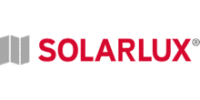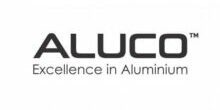Technology in glass is already quite sophisticated. For many years already glass has been available that performs many required functions. Examples include privacy glass, bullet resistance, blast protection glass, fire resistant glazing and of course glass that offers varying levels of tint, solar shading, reflection and colour.

One issue we have yet to resolve despite advances in coating technology is stopping light getting through. Light and heat are still two areas where glass in either a standard or modern day coated form cannot easily solve. Whether it is letting in too much sun or heat any kind of glass suffers from this natural process and today our options have been blinds, curtains or shades.
For those that seek some form of sun protection within their glass solutions so far include anti-sun glass, sun protection glass such as sun-cool and other types and applied window films. Other solutions that are not specifically glass related are manual or automatic blinds within double glazed units and commercially at least, brise soleil.
What is Smart Glass?
Smart glass technology is already here in the form of electrochromic glass that changes from light to dark and transparent to obscure. There are now a number of companies that offer Smart Glass, Dynamic Glass or other brand names that essentially offer varying levels of shade depending upon how bright the sunlight is.
Electrochromic technology is at the heart of Smart Glass. This uses materials that change their colour upon the application of an electrical charge. One pane of glass has an electrochromic metal oxide coating that is thinner than human hair. This coating is then sealed within two panes of glass. Laminated glass technology is one process that is applied to make this happen.
In a similar way to the heated rear windscreen of vehicles, wires come out of the double glazed unit that conduct electricity and alter the colour or shading of the glass. Varying levels of voltage will also affect how dark the glass goes. The process is similar to the manufacture of computer chips.
What are the advantages of Smart Glass?
The obvious advantage is a reduction in ventilation costs particularly in warmer countries where solar gain would result in the air conditioning being switched on. But are there other advantages?
It is reported that once fully darkened, Smart Glass can reflect over 95% or light. This would substantially reduce the energy consumption of most glass fronted buildings such as those with aluminium curtain walling or facade glazing.
Of course Smart Glass will also do away with the need for external or internal sun shading options such as blinds and the energy consumed in changing from light to dark is minimal.
Additionally, Smart Glass with many suppliers is only available up to 1500x3200mm maximum sizes approximately. This is suitable for most window and door applications.
What are the disadvantages of Smart Glass?
As with any new technology there are advantages and disadvantages. Early generation of this glass don’t meet every requirement but it is early days in the use of electrochromic glass and it should improve in the future.
Slow to change
In it’s current form Smart Glass is not that fast in changing from light to dark and back again. Most products currently available take several minutes which unlike manual or automatic blinds is much slower.
Guarantees may not match the window frames
Another disadvantage is the guarantees offered which with most manufacturers’ Smart Glass products are less than the 10 year guarantee offered with residential installations. Commercially this is not an issue, but residentially it could be an issue for homeowners as 2 year guarantees appear to be the norm.
Not all window companies can glaze Smart Glass
Some manufacturers prefer to install their own glass. This will be more expensive to commercial and domestic window firms that typically like to buy in their own glass and glaze it themselves. Importantly electrical connections would have to be carried out but a qualified electrician with established wood working practices and safety for electrical installations and wiring.
Smart Glass is expensive
Typically, this new glass technology is significantly more expensive than the standard double glazing used. An average size pane of Smart Glass in a window can cost upwards of £600 per pane therefore adds substantially to the cost of the window. Ultimately it is the end user or client that makes the decision but initial prices indicate electrochromic glass is more expensive than standard modern units with integrated blinds.
Not every window or door product can accept Smart Glass
Some manufacturers of this glass technology advise that it is not compatible with every window and door system and recommend you contact them to find out which systems are suitable. The companies we contacted informed us that they have yet to use the product in a PVCu system but several aluminium systems and many European extrusions can be glazed with this product.
Is the the future of glass technology in the home?
Cost is a deciding factor with many standard installations, but many high end homes and new build constructions have already been fitted with Smart Glass. Commercially it already makes a lot of sense in glass fronted buildings where it is used for the energy saving benefits it brings. In residential properties we may see more people move to Smart Glass as home extensions change to consist of more glass and less visible frames.
What do you think?
If you are presently embarking on a renovation project or Grand Designs type home have you considered this type of glass as an alternative to other forms of shading? Or perhaps you’ve never heard of electrochromic glass and want to find out more? Contact us if you do.











